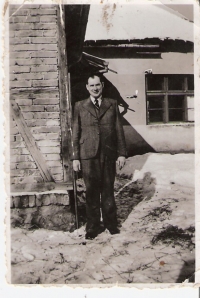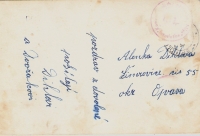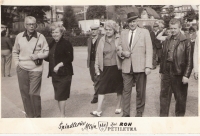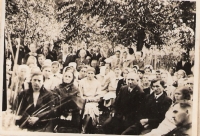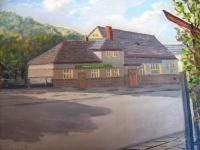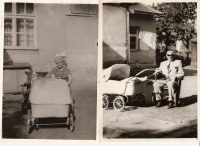We were rescued by partisans who testified that we were Czechs
Alena Šindlerová, née Dihlová, was born in 1941 in Žimrovice near Opava in the place where her parents built a pub in 1030. Her father originated from an agricultural family, but later worked in a forge and as an auxiliary worker at the railway. However, his entrepreneurship led him to participate in the competition for the construction of a pub in Žimrovice. The construction of the pub was accompanied by great financial and difficulties and other complications on the part of the locals, but still Alena’s father finished the pub and her mother worked there as a cook. After the adoption of the Munich Agreement in 1938, the Germans occupied the Sudetenland, but Mrs. Alena’s father operated the restaurant without interruption throughout the war. Mrs. Alena graduated from primary school in Žimrovice, then graduated from secondary school in Hradec nad Moravicí. At the beginning of 1945, as the German front passed through their village, German soldiers stayed in their pub without asking for permission. Despite the fear that the family had of them, this fear was not confirmed in the end, but later Soviet soldiers wanted to shoot the pub down until the local partisans confirmed to them that the family was of Czech and not German origin. At the end of the war, there were shootings in the area between the Soviet and German armies, so local families hid in an underground bunker in the woods while Alena’s dad guarded the pub. After the war, Mrs. Alena’s father became seriously ill and stayed in a wheelchair for a long time. In the meantime, however, the regime changed and the communist’s personal property was expropriated, which Alena’s father vehemently defended and the regime tried to prevent him from doing business by suspending drinks and other offers to the consumers, but eventually on the first day of 1958, he had to join the collectivization cooperative and Mr. and Mrs. Dihl became its employees. The family had a hard time for having expropriated the pub for many decades. It was eventually returned to them after the 1990 revolution.
